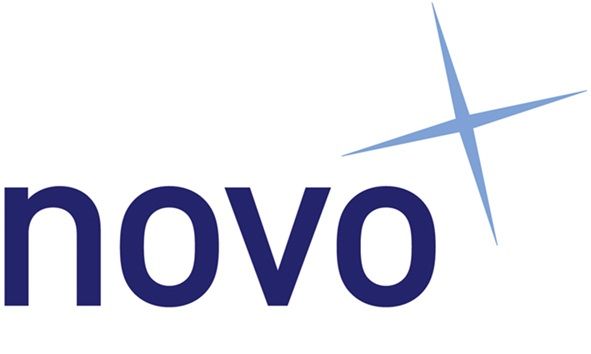WHY IS AN EXCEPTIONAL EXECUTIVE VITAL TO BRAND SUCCESS?
The goal of this article is to highlight how the role of an executive impacts organisational productivity and enhances brand awareness. We’ll explore various challenges associated with recruiting a top-tier executive, cover a few tips for knowing what to look for when recruiting top-level talent for your leadership team, and finally, discuss several ways to make sure you are able to recruit one of today’s top-tier business leaders.
Success Starts At The Top
Leadership starts at the top and trickles down, infusing all parts of a company’s infrastructure. Organisational performance, office morale, and corporate culture are all influenced by a brand’s leaders.
Today’s ever-changing business landscape makes it difficult to maintain stability. Markets and customers are constantly changing, and technology is becoming increasingly advanced. Hiring an executive who can adapt a brand to these changes is crucial to expanding brand awareness. Your core operations are under threat if you don’t have a good leader in place. This leader must boast a wide-range of skills, creativity, and innovative thinking.
With a talented executive in place, your employees will be influenced to perform their assigned tasks efficiently and effectively. Employees can be assigned to roles that suit their competencies.
Challenges With Recruiting a Top-Level Executive Leader
Recruiting higher level talent such as top-tier executives brings it’s own set of challenges.
In fact, according to Glassdoor, the average length of time it takes to complete an interview process is an astonishing 23.7 days; this applies to all positions. Compare this to up to 76 days when recruiting for the C-Suite (although we’d like to point out that 90% of our executive search assignments reach offer stage within 7 weeks).
When the executive role you’re recruiting for is a brand-new role in your organisation, rather than a succession, the challenges can be even greater as you’ll first have to define the requirements of the new role.
Why is recruiting top-tier executive leaders so challenging? Although each situation is different, the reasons can include:
• A need for Internal confidentiality, should a C-level exec be being replaced without their prior knowledge
• A broader spread of skills needed (with communication & collaboration skills being essential regardless of their specific role)
• Alignment with company culture. Whilst true for all employees, it’s even more important for any prospective new leaders to ‘fit’ with the ethos & culture of an organisation, as the leaders will help define how more junior staff members see the organisation
• Discretion needed when approaching executives in an existing role. It is quite usual to recruit executives who are already in a similar role at another, possibly competing, organisation. Approaches of this nature need tact and discretion, all of which takes time & experience to execute
Knowing What to Look for When Hiring an Executive
Hire Executives That Are A Good Culture Fit.
When we think of the characteristics of what makes exceptional executives, it’s important to not only take into account their skills and past experience, but also their potential for fitting in with your organisation’s culture.
Whilst important for any level of employee, ensuring a good culture fit is vital when recruiting senior executives. Executives at the top of your organisational structure help shape your business, a mismatched culture fit at such as senior level can have serious consequences across your entire organisation.
In fact, Personnel Today reports that:
• 96% of HR leaders said they prioritised cultural fit
• Yet only 11% are actually satisfied with how they achieve this
• A huge 89% wanted to improve their recruitment processes in this regard
Ensuring a good culture fit isn’t easy, however it is nonetheless a vital component of any executive search strategy. Tactics such as Psychometric Profiling can help identify candidates that are a good fit for your organisation.
Executives Should Improve Collaboration
Although we’ve mentioned this briefly already, it’s an important enough point to reiterate. Executives who foster a culture of collaboration within your organisation can have a huge impact on the performance of more junior team members. However, it’s also vital for the C-suite executives to collaborate effectively with each other.
Greater C-suite collaboration can enhance & encourage critical thinking, and encourage a healthier exchange of thoughts & ideas at the leadership level. This in turn helps to solve problems faster, aids the business in continued growth, and boosts innovation. Additionally, collaborative approaches at the C-suite level tend to trickle-down and set the tone of collaboration for the rest of the business.
Whilst encouraging collaboration within the C-Suite may seem like an obvious statement, without real efforts to encourage this level of communication, such collaborative approaches are actually quite rare. For example, a study by Deloitte, reported in Industry Week, reveals that While 85% of survey respondents favoured a symphonic C-suite (a team-based, cross-disciplinary approach to tackling complex issues) 73% say their executives do not regularly collaborate.
Hire Executive Leaders With A Strategic Focus
This is another tip that may at first seem obvious, however consider for a moment, the results of a survey by HR software company, hrperformancesolutions.net:
• 87% of employees recognize a strategic focus as being at the heart of effectively filling their roles
• 60% of employees don’t understand how their roles support their employers’ company initiatives
As we can see, it’s vital that any new executives are not only able to exhibit a strategic focus (allowing them to understand your organization and it’s goals), but they must also be able to explain the strategy to employees, ensuring they are on-board and understand how they, within their role, can execute against the company’s initiatives.
Conclusion
Executives, especially C-Suite level execs, can have a profound impact on the efficiency and productivity of the rest of an organisation’s workforce, and so on the bottom-live. As we’ve seen, hiring a new executive has it’s challenges and certainly should be approached with a high level of diligence, ideally by someone with a wealth of experience in hiring high-level staff.
When hiring a new executive, be sure to search for a prospect who not only excels at their specific role, but who is also able to communicate effectively with a more junior workforce to encourage them & help ensure all staff are on-board with your organisation’s goals. Don’t take this for granted, remember the study above that highlighted 60% of employees surveyed didn’t actually understand how their own roles actually helped with company initiatives.
Likewise, any executive should be able to collaborate well with other C-suite executives, to help create a more efficient, effective, and dynamic C-suite – one that is capable of communicating effectively to rise up to the many challenges thrown at organisations.












